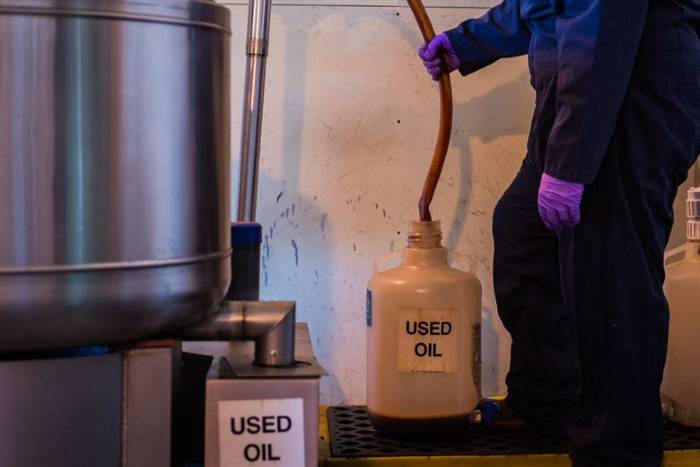 |
| Environment Quiz on Hazardous waste |
Environment Quiz on Hazardous waste – Ultimate questionnaire
Quiz on Hazardous Waste: Some wastes have toxic, reactive, corrosive,
flammable, radiation, etc. properties and harmful to the environment or life on
Earth are classified as hazardous waste. Waste such as explosives, radioactive
materials, toxic and reactive chemicals, oily sludge, air pollutants,
industrial effluents, asbestos, etc. directly affect the health of species and
the environment and that is why they are classified as hazardous waste. This
type of waste can be from Industries, hazardous process, hospital industrial or
even agriculture and domestic in origin.
Quizzes are the ultimate
way to test your knowledge on different subjects, learning outcomes and
identify your strengths and weaknesses to plan further study. It also offers an
interesting way to learn new things with joy and fun.
This hazardous waste quiz helps you understand
the types of hazardous waste, their original sources, legal obligation to
manage the disposal, best practices for segregation, collection, recycling standards,
regulates the management of hazardous waste and much more.
This questionnaire on hazardous waste can be
shared with employees, colleagues, friends, children or with the community to
make them aware about the danger and the importance of management of hazardous
waste. This quiz on hazardous waste can also be
used as an important tool to raise awareness of environmental sustainability by
preventing the land contamination, water, and air pollution by developing,
implementing and maintaining robust hazardous waste management system.
This hazardous waste management quiz features 15
multiple choice questions and answers, with each question having four answer
options. You must select the correct one by click on it, flashing green
indicates the correct answer, while red is the wrong answer. At the end of the quiz,
your total score will appear.
Let's
start the quiz and test your knowledge about Hazardous Waste.
ENVIRONMENT QUIZ
QUIZ ON HAZARDOUS WASTE
Question of
Good Try!
You Got out of answers correct!
That's
1. What is meant by hazardous waste?
2. Which of the following is hazardous waste?
3. Can oil soaked cotton hand gloves categorized in hazardous
waste?
4. Can used catalyst or spent catalyst in an oil refinery be
classified as hazardous waste?
5. What are the contaminants found in oil refinery’s wastewater?
6. What are the soil contaminants found in oil refinery?
7. How to treat spent catalyst in oil refinery for recovery,
recycle or safe disposal?
8. How to recycle or reuse the oil sludge in refinery?
9. Which one of the following is not hazardous waste?
10. RCRA means?
11. What is the process used to dispose of certain hazardous
waste by using high temperature?
12. What is the technology used to dispose of certain
hazardous waste at ultra-high temperature, more than 3000 degree C, in inert
atmosphere?
13. Waste destruction in a
furnace by controlled burning at high temperatures is called?
14. What is called as the
accumulation of substances, such as pesticides, or other chemicals in an
organism?
15. What system used for
disposal of domestic sewage and wastewater in rural and suburban areas?
To learn more about managing hazardous
waste, keep reading the following information that will definitely help
you think outside of the box.
What do you mean by hazardous waste?
Toxic, reactive, corrosive, radioactive, explosive, oxidizing,
flammable, irritant, carcinogenic, infectious or ecotoxic waste which present a
potential risk of direct danger to life or the environment are considered as
hazardous waste. This type of waste may be in solid, liquid or gaseous form and
mostly generated during industrial operations or manufacturing process.
How is hazardous waste managed in industries?
Industrial hazardous waste in liquid and gaseous form are
treated inside the factory premises through process in different treatment plants
such as gas scrubbing units, sulfur recovery units, amine treatment plant,
wastewater treatment plant, etc. whereas hazardous solid waste is disposed out
through approved or licensed vendor via contract agreement.
Organizations are managing all hazardous waste by developing,
implementing, and maintaining a hazards waste management procedure inline that
comply with legal obligations. Under the waste management procedures, all type
of hazards waste are identified, segregated and stored in a dedicated identified
area with a label. Slope oil, used oil,
oil sludge and other hazards liquid including expired chemicals are stored in
dedicated storage area. Most hazardous liquid waste is reused and recycled in the
process, whereas those liquid waste material cannot be recycled are disposed of
through licensed vendors.
Electrical waste including LED, old appliances, printer
cartridges, batteries, etc. are considered special waste and stored separately
from all type of hazardous waste. Most of the waste is disposed of at the original
manufacturer or their authorized vendors.
Solid hazardous waste such oil-soaked hand gloves, oil-soaked
cotton, spent catalyst, contaminated soil, etc. are segregated and stored
separately in dedicated labeled area under shed. ETP sludge is stored in a dedicated
hazardous waste yard to control the moisture and then disposed of through
approved vendor. Most hazardous waste is treated on company premises prior to
disposed of.
Record of all hazardous waste is maintained, and information
is also shared with regulatory body. Same records are also published in the company’s
sustainability report to share with investors and the public.
What is the source of hazardous waste?
The industries such as Oil and gas, chemical, fertilizers and
cement are at top in producing hazardous waste. However hazardous waste can be
generated in construction industries, electrical and battery manufacturing
industries, agricultural and pesticides industries.
Some examples of hazardous waste
- Printer cartridges, LED, Tube lights, Spent light bulbs and neon tubes
- Batteries and accumulators
- Empty Aerosol canes, Paint and empty paint containers
- Chemicals, expired chemicals and empty chemical containers
- Industrial sludges, oil sludge, slope oil, ETP sludge, spent catalyst
- Spent thinners and solvents, oil-soaked hand gloves, oil-soaked cotton, etc
- Waste lubricating oils, grease, and other used oils
- Asbestos
- Expired medicines, infectious medical waste, Used syringes
- Used pesticide containers, empty fertilizer bags, etc.
Summary
The Environmental
Quiz on hazardous waste can be shared with your employees, community
and school children to make them aware of the importance of hazardous waste
management by reducing, recycle, segregation, collection, transportation, and
safe disposal through licensed vendor. This quiz can also be used as a training
aid to educate people about the hazardous waste management procedure to comply
the statutory requirements and to save the environment.
Education,
awareness and law enforcement are the most effective ways to prevent and
minimize any type of waste including hazardous waste. The management of
hazardous waste through appropriate means of prevention practices, segregation,
collection, treatment, transportation and recycle through various authorized
agencies must be ensured to comply the law. This hazardous waste quiz
is designed to cover all relevant information on waste management processes and
practices and can also be used to validate the training program to uncover
strengths and weaknesses in order to plan additional awareness programs on hazardous
waste management.
You may find affiliate
links in this article. This means that if you click on a link and purchase any
of the products on this page, we may receive a commission, at no additional
cost to you, It does not affect our knowledge sharing, opinions or reviews. Everything
we do is benefit for you as the reader, so all our knowledge sharing, reviews
are as honest and unbiased as possible.



Please do not add link in the comments, it will be treated as spam comments